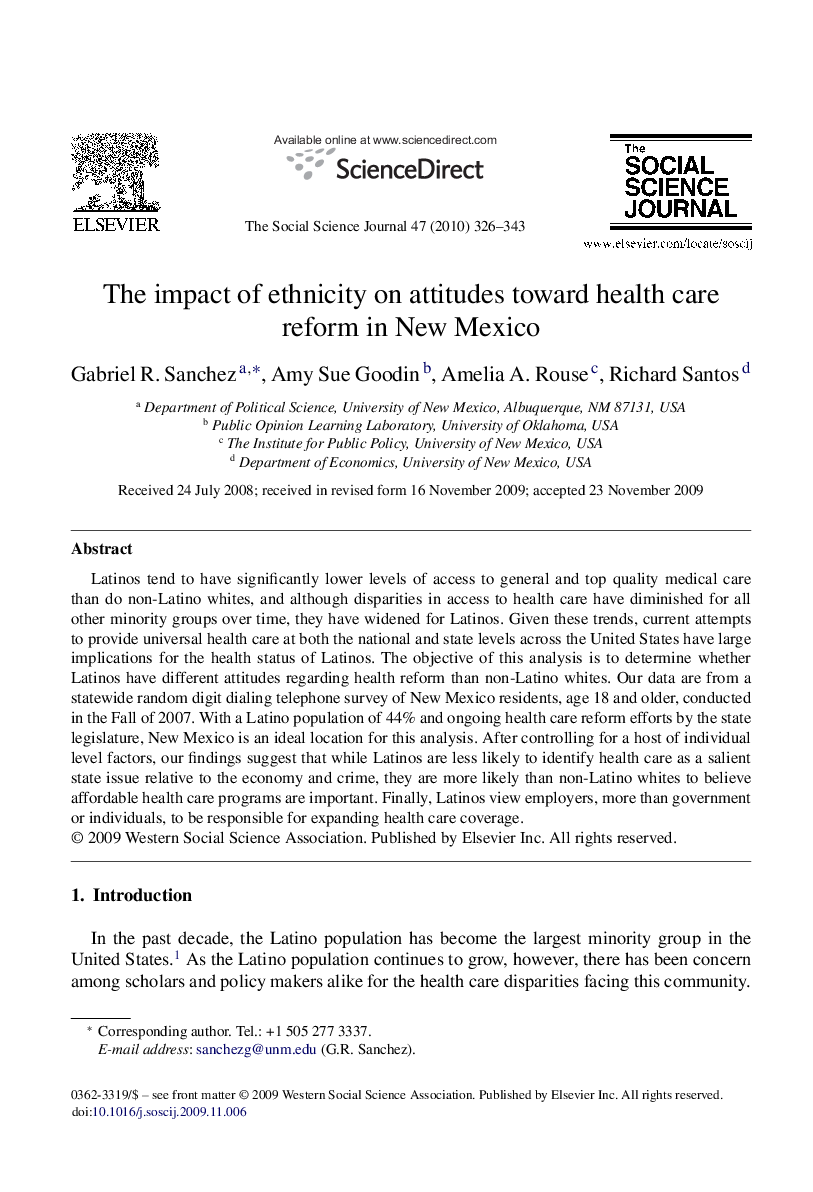| Article ID | Journal | Published Year | Pages | File Type |
|---|---|---|---|---|
| 140422 | The Social Science Journal | 2010 | 18 Pages |
Latinos tend to have significantly lower levels of access to general and top quality medical care than do non-Latino whites, and although disparities in access to health care have diminished for all other minority groups over time, they have widened for Latinos. Given these trends, current attempts to provide universal health care at both the national and state levels across the United States have large implications for the health status of Latinos. The objective of this analysis is to determine whether Latinos have different attitudes regarding health reform than non-Latino whites. Our data are from a statewide random digit dialing telephone survey of New Mexico residents, age 18 and older, conducted in the Fall of 2007. With a Latino population of 44% and ongoing health care reform efforts by the state legislature, New Mexico is an ideal location for this analysis. After controlling for a host of individual level factors, our findings suggest that while Latinos are less likely to identify health care as a salient state issue relative to the economy and crime, they are more likely than non-Latino whites to believe affordable health care programs are important. Finally, Latinos view employers, more than government or individuals, to be responsible for expanding health care coverage.
